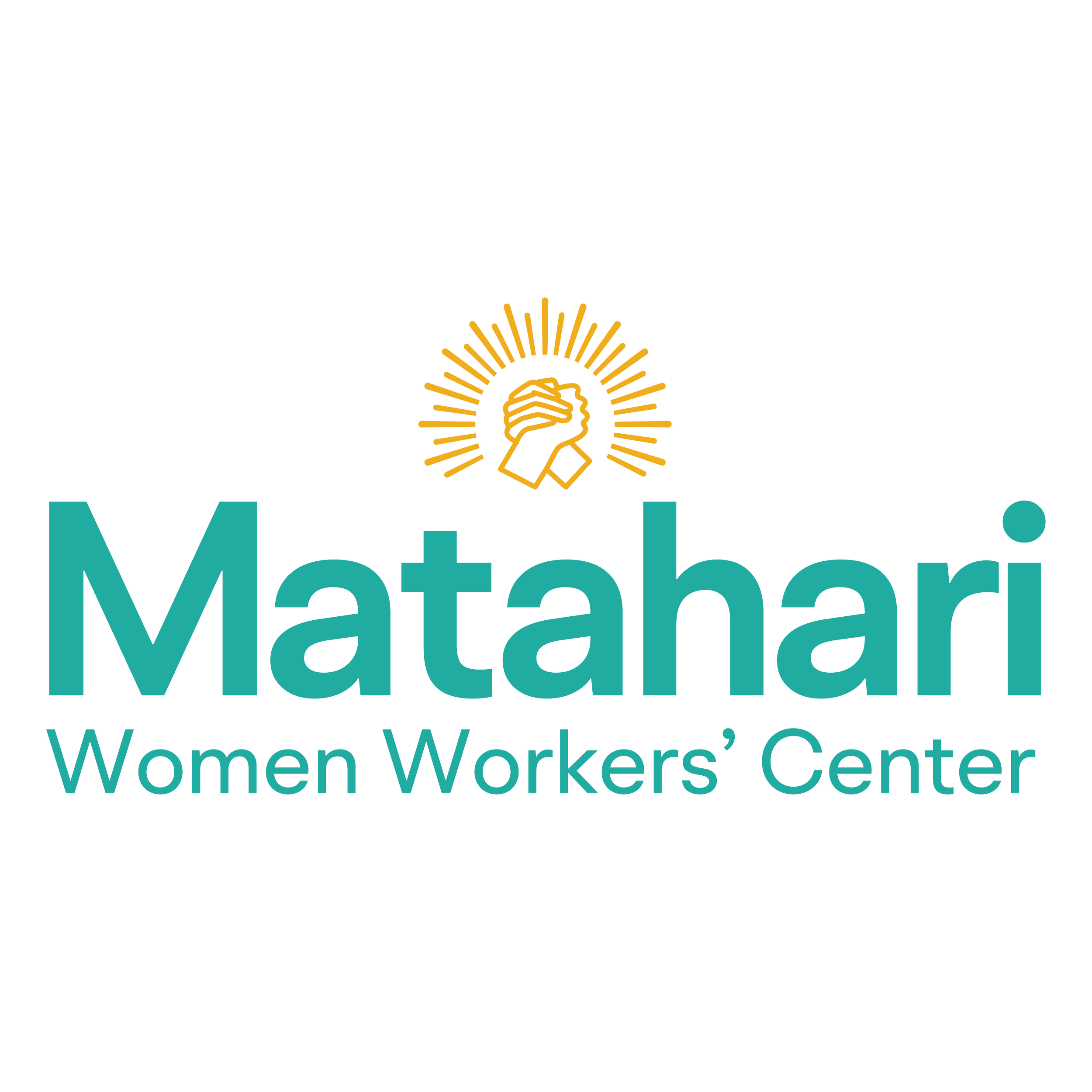Press Release: 03/04/21
PRESS RELEASE: Domestic Workers Call for Immediate Inclusion in Phase 2 of MA Vaccine Rollout with Other Essential Workers
FOR IMMEDIATE RELEASE
March 4, 2021
For English media requests: Julia Beebe, julia@mataharjustice.org, 617-758-8782
For Spanish media requests: Laura González, laura@mataharijustice.org, 617-356-1730
Boston, MA — In an open letter cosigned by over 400 Massachusetts organizations and residents, the Matahari Women Workers’ Center has called on Governor Charlie Baker, Secretary of Health and Human Services Marylou Sudders, and their advisory team, to include all domestic workers in Phase 2 of the state’s vaccine rollout, along with other essential workers. While home care workers have been justly prioritized in Phase 1, nannies, au pairs, and house cleaners have not been named among the essential workers eligible for the vaccine in Phase 2.
Inclusion of domestic workers in Phase 2 is a matter of racial and gender justice, as the majority of domestic workers are women of color. Governor Baker has expressed a commitment to an equitable vaccine rollout; this represents a critical opportunity for the governor to prioritize the workers who have disproportionately borne the burden of the pandemic. Research has found that workers of color are more likely to have jobs in which there are higher rates of Covid, including childcare and other personal care and service. Black and Latinx workers have had significantly higher age‐adjusted mortality rates than white workers.
Jessica Colindres, a nanny and organizer at Matahari Women Workers’ Center, “We have faced Covid-19 and now we need the vaccine. My life is on the line when I go to work to take care of children. So many domestic workers work for doctors and are at risk of exposure, as are our own families. As immigrants, we have struggled in the pandemic. Now we want to be heard.”
Domestic workers make all other work possible by caring for people’s loved ones and homes. This was true pre-Covid, and has become especially true during the pandemic. Indeed, in his March 2nd remarks, President Biden named childcare workers as essential workers and called for their prompt inclusion in vaccine access. Yet nannies and other domestic workers face inadequate protection from Covid-19 and have little control over their workplaces. They interact daily indoors and in close proximity not only with those in their care, but also their employers who often work from home and their employers’ family members, who may not follow Covid-19 guidance in the privacy of their homes.
Ana Cipoletta, a nanny and Matahari Women Workers’ Center board member, shares, “As domestic workers, we need to be respected, valued and recognized as essential workers with respect and dignity. For years we have suffered labor abuse, such as low wages and no benefits. While many nannies lost their jobs during the pandemic, many of us continue, putting our lives, our families and the community at risk. Thanks to our work, we allow many people to work from their homes, allowing them to remain isolated, safe and, above all, out of danger from the virus.”
For interested members of the press, Matahari domestic worker leaders can provide interviews on working during the pandemic and the importance of domestic worker inclusion in Phase 2 of the vaccine rollout.
###
Matahari Women Workers’ Center is a Boston-based community organization, working to end gender-based violence and exploitation. Founded in 2002, Matahari is a leading force in advancing the rights of women workers, immigrant families, and survivors. Matahari was instrumental in passing the 2014 Massachusetts Domestic Worker Bill of Rights, which extends basic labor protections to nannies, au pairs, home care workers, and house cleaners. During the Covid-19 pandemic, Matahari has organized domestic workers and restaurant workers for dignity and protections at work. Learn more about our work on Facebook, Twitter and Instagram.
